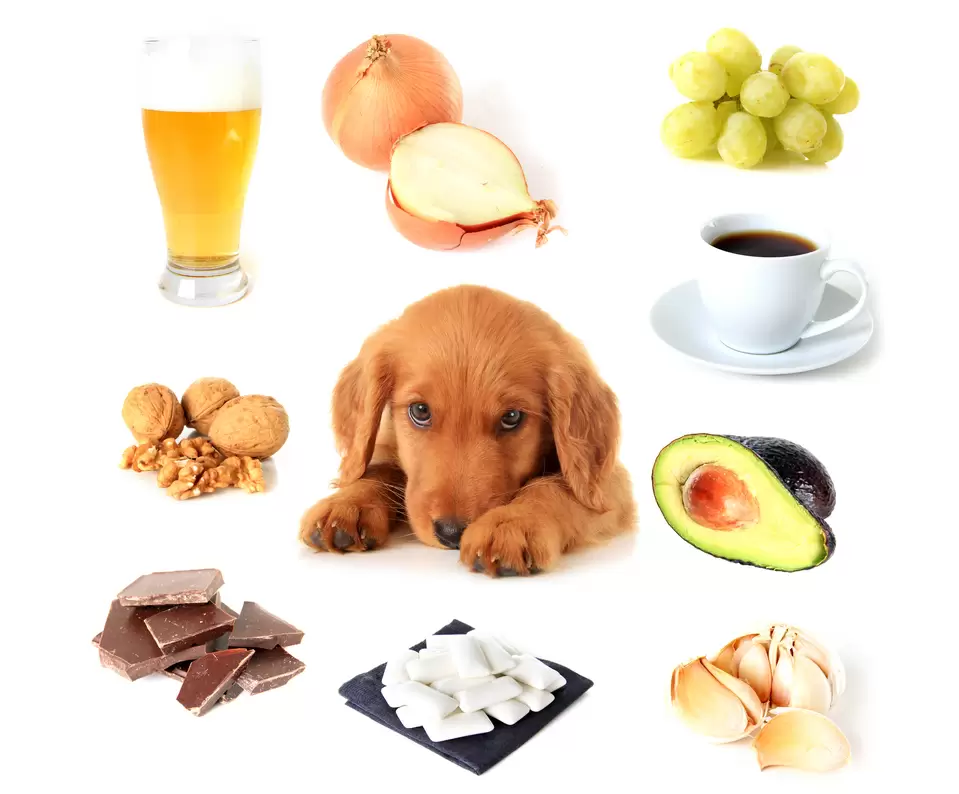
It’s a pet owner's nightmare; your pup has consumed something poisonous. There are many hazards around the home that have the potential to poison your four-legged friend and prepping to minimize the chance of accidental consumption will not only ensure your pet stays healthy, but also save you potentially expensive vet bills.
Dangerous Foods
While there are common foods that the average pet owner knows their pup should not consume, such as chocolate, there are many other standard pantry items that should be kept properly contained such as:
- Xylitol-containing products - this is often found in chewing gums and candy
- Grapes and Raisins
- Coffee Grounds
- Fatty Foods
- Avocados
- Alcohol
- Onion
- Garlic
- And More
There are many human foods that are safe for your pet to consume and can even be beneficial when served properly. But before you introduce any needs table scraps or foods into your pet's diet, it is important to extensively research what is safe and consult with your vet before serving.
Common Household Dangers
Foods are not the only potentially poisonous items that are kept under your roof. There are common products that should be properly stored away such as:
- Household Cleaners
- Antifreeze
- Insecticides and Rodenticides
- Fertilizers
- Human Medicines
- Illegal Substances
- Batteries
- And More
Other items that should be researched before being around your pet include household plants.
Prevention is Key
Oftentimes items are put in pantries or stuck in the garage and assumed that they are out of reach of your furry friend - unfortunately, this is not always true. Dogs that are left unattended and get interested in a scent can prop open cabinet doors or tear through plastic bags ultimately allowing them access to the dangerous substance inside. The following are useful tips to help store dangerous food and items:
- Outdoor fertilizers and chemicals should be kept in a locked cabinet or shed that will not succumb to pawing and pushing
- Medicines and household cleaners should be kept in a secured and inaccessible area and in sealed containers or bottles
- Ensure your trash can is kept out of reach in a closet or cabinet
- While using yard chemicals or household cleaners, kennel or place your pet in a separate area of the home to ensure they are not exposed
Signs of Pet Poisoning
The symptoms of toxicity in dogs can range depending on the type of poison. These are the most common reactions:
- Seizures or Tremors
- Trouble Breathing
- Vomiting or loss of appetite
- Lethargy
- Unsteady Walking
- Diarrhea
- Drooling
- And More
Pet poisoning symptoms can occur immediately after consumption or may be delayed which is why it is important to always keep an eye on your furry friend. While many cases of pet poisoning can be treated, some substances can leave your pet with permanent damage such as anemia or organ damage and will require a long road to recovery determined by your veterinarian.
What To Do
If you believe that your dog has consumed something poisonous or begins to exhibit symptoms, it is important to act fast.
Calling your veterinarian immediately to talk through the situation and determine if the substance they consumed is poisonous and what the appropriate next steps are is a great place to start. If you cannot reach your veterinarian, you can call the ASPCA Animal Poison Control Center at 888-426-4435 or the Pet Poison Helpline at 855-764-7661 (A consultation fee may apply). Since time is an important factor when dealing with a pet poison situation, it is highly recommended to begin traveling to your vet or pet hospital while trying to call and prepare them for your arrival.
Make sure to have your pet's general information along with the consumed item handy in order to provide the most details possible.
Pet poisoning is not something that should be taken lightly. Taking the necessary precautions to ensure your home environment does not allow for easy access to potentially harmless substances will not only be best for your pup but will also give you peace of mind.